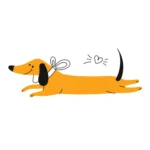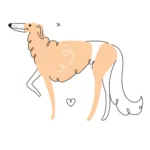Copyright Denver Dumb Friends League and Humane Society of the United States. All rights reserved.
Destructive Chewing
Destructive chewing is a common issue in dogs, but it can often be managed and prevented with consistent training, management, and providing appropriate outlets for your dog’s chewing instincts. Here are some strategies to prevent destructive chewing.
1. Provide Appropriate Chew Toys
* Offer a variety of safe, durable chew toys suitable for your dog’s size and chewing habits (e.g., rubber toys, nylon bones, or stuffed toys).
* Rotate toys to keep them interesting and engaging.
2. Exercise and Mental Stimulation
* Ensure your dog gets plenty of physical exercise to release pent-up energy.
* Incorporate mental stimulation through puzzle toys, training sessions, or interactive games.
3. Supervise and Contain
* Supervise your dog closely, especially when they are young or new to your home.
* Use a crate, baby gates, or playpen to confine your dog when you can’t watch them, ensuring they don’t have access to inappropriate items.
4. Remove Temptations
* Keep items you don’t want chewed out of reach (e.g., shoes, electrical cords, or furniture corners).
* Use cord protectors or sprays like bitter apple to deter chewing on specific items.
5. Redirect Chewing Behavior
* When you catch your dog chewing something inappropriate, calmly redirect them to an appropriate chew toy.
* Praise and reward them when they chew on the correct item.
6. Rule Out Underlying Causes
* Teething: Puppies chew to soothe teething pain. Provide frozen toys or teething rings.
* Anxiety: Separation anxiety or stress can lead to destructive chewing. Address anxiety with calming techniques or consult a professional.
* Hunger: Ensure your dog is on a balanced diet, as some chew due to hunger or lack of nutrients.
7. Train with Positive Reinforcement
* Teach commands like “leave it” or “drop it” to help control inappropriate chewing.
* Reward good behavior consistently to encourage positive habits.
8. Seek Professional Help if Needed
* If destructive chewing persists despite your efforts, consult a veterinarian or a certified dog trainer/behaviorist. There may be an underlying behavioral or medical issue.


